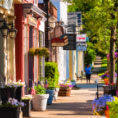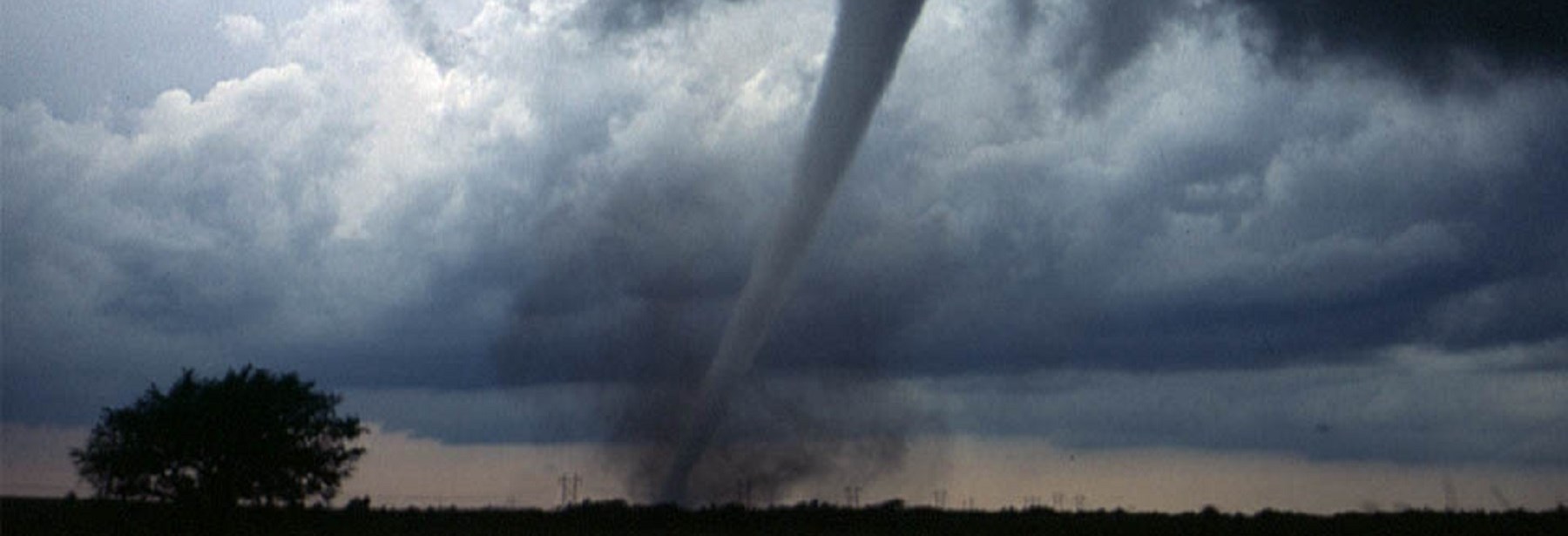Emergency Response Plan
Being prepared during an emergency
An emergency or disaster can happen at any time. You can be sure that the Town of Tecumseh and its partners will work together to respond to the situation. Our public safety and health officials, thanks to the planning of our Community Emergency Management Coordinator, are prepared to respond quickly to protect you and your family.
Town of Tecumseh Emergency Response Plan
Town of Tecumseh Flood Response Plan
Citizens and businesses of our community also have roles to play. By doing a few basic things to prepare yourself, your family, and your business, you can help us become a prepared community. The more planning you do before a disaster, the better you will be able to cope during an emergency.
Whether to protect your family or your business, you need to take some time to consider the risks that we all face and take the right measures to protect what is important to you. Families can be prepared by planning and working together as a team. Before you begin developing your family emergency and disaster plan, take a few moments to consider the possible emergencies or potential disasters you could face. These situations and events could affect you, your family or your community. Your best protection in any emergency or disaster is in knowing what to do.
In the Town of Tecumseh, it is a good idea to be prepared for these kinds of emergencies:
- Power outages
- Severe winter storms
- Floods
- Heat emergencies
- Contagious disease outbreaks
- Hazardous chemical spills
Talk to your family members to get their help to create an action plan you and your family can follow to help reduce the possible effects of any emergency.
Involve all family members in the planning process, so that they know what to expect, as well as what to do when an emergency strikes. Regularly talk about and update your plan.
Gather supplies you might need if stuck at home or evacuated due to an emergency. Items you will need in an evacuation should be stored in an easy-to-use container such as a backpack or duffle bag.
|
The basics |
|
Not everyone may be able to have a full emergency kit, but everyone should try to have the basics on hand:
|
|
Personal emergency preparedness |
|
You should be prepared to take care of yourself and your family for up to three days in the event of an emergency or disaster. It is a good idea to have an emergency kit for both your home and vehicle. An emergency kit should contain at least a three-day supply of non-perishable food and at least four litres of water per day per person. |
|
Items to include in an emergency kit |
|
|
Additional items your family may need |
|
|
Emergency Response Plan - Town of Tecumseh |
|
The Town of Tecumseh has plans and programs to protect the community during emergencies. In partnership with local first responders, health organizations, social services, utilities and volunteer groups, the Town is always working to be prepared. We do this through testing, training and updating the emergency plans and programs to make sure we are ready for any emergency that happens in our community. No matter how prepared we are, we cannot predict an emergency or disaster, but we can all take steps to reduce the impact of any situation that comes our way. Section 2.1 of the Provincial Emergency Management and Civil Protection Act (EMCPA) requires municipalities to develop and implement an emergency management program and adopt it through a by-law. The Town of Tecumseh has a formal Community Emergency Management Program to deal with major emergencies. Read the Town of Tecumseh's Emergency Plan and Town of Tecumseh's Flood Response Plan. |
|
In an emergency |
|
During an emergency, knowing what to do will help you stay safe and in better control of the situation. |
|
Emergency shelter-in-place |
|
If there is an emergency from a spill or a fire from a hazardous spill, you may be evacuated or be advised to “shelter-in-place”. “Shelter-in-place” means that you must stay indoors when there is hazardous material in the air. You should move out of the way of smoke or fumes and stay indoors. DO NOT go through smoke or fumes. Staying inside a building or vehicle can reduce your exposure up to 10 percent. Here's how to stay safe during a spill or fumes:
Leave your home and evacuate only if you are told to do so and stay away from any spills or fires. Listen to the advice of local officials on the radio or television to know what steps you will need to take to protect yourself. |
|
Emergency evacuation |
|
During some emergencies, it may be necessary to evacuate the emergency and surrounding area. An emergency evacuation centre may be set up to offer shelter and food to people affected by the emergency. If there were a need to be evacuated, you would be notified by media announcements, social media or emergency workers.
A reception centre may be set up to offer food, shelter and information to people affected by an emergency. If you are going somewhere other than the reception centre, let the reception centre or municipal government know of your location. |
|
After an emergency |
|
Right after an emergency, you may feel worried, confused and disoriented. These are perfectly normal reactions. If you are informed and prepared, you will be able to recover more quickly and you can help others do the same. The following steps will help you get back on track: Help the injured Ensure to help anyone who is hurt, and call 911 if necessary. Check on your neighbours It is very important to check on your neighbours, especially the elderly or people with disabilities. Be informed Listen to your local radio station or check local websites and social media feeds for updates. Try not to use the telephone Do not use the telephone unless it is necessary, as emergency crews will need all available lines. For non-emergency information, call 211 instead of 911. Check your home Carefully check for damage to your home, and do not enter any structure you believe is not safe, structurally unsound or contains a hazard or harmful materials. Remember the following points:
Remember, if you turn off the gas, a professional from the gas company should turn it back on. |
|
Prepare for specific emergencies |
|
Not all emergencies are the same. Look through our summary guides below to prepare for specific emergencies. |
|
Power outage |
|
Turn everything off
Use a flashlight
Generators Generators are an option for backup electricity, however:
Alert: Using food when the power goes off
Alert: Cooking without electricity
|
|
Severe winter storm |
|
Severe winter storms can cause widespread damage and disruption. Heavy snow often causes the slowing or shutting down of public transit, car accidents and stranded vehicles. When a winter storm has strong winds and extreme cold, snow can isolate entire communities. Bitter cold and severe winter storms kill more than 100 people in Canada every year. That is more than the number of Canadians killed by tornadoes, thunderstorms, lightning, floods, hurricanes and heat waves combined. Ice storms are often winter's worst danger. The severity of ice storms depends on the buildup of ice, the length of the event, and the location and size of the area affected. During a blizzard, winds can blow snow into drifts that can bury people, animals and belongings. The weight of heavy snowfall can also cause the collapse of buildings. A blizzard that lasts a long time may form whiteouts, where so much snow falls it is hard to tell the ground from the sky. If you are indoors
If you are outdoors
If you are in a vehicle
|
|
Severe lightning storm |
|
Thunderstorms bring a wide range of threats. These include hail, lightning, strong winds and heavy rainfall. All of these dangers can result in property damage, injuries or deaths. React right away when you first see lightning, hear thunder or are given some other warning. There are a few simple precautions that you can take to protect yourself If you are indoors
If you are outdoors
If you are in a vehicle
|
|
Flood or flash flood |
|
Flash floods happen when intense thunderstorms drop a large amount of water in a short time. Flash floods occur with little or no warning. When there is flooding in a city, streets can become swiftly-moving rivers and basements can fill with water If you are indoors
If you are outdoors
If you are in a vehicle
|
|
Tornado |
|
Tornadoes result from hot, humid weather meeting a cold front. With these conditions, a tornado could be imminent. A funnel cloud hanging from a dark cloud may appear before the tornado actually occurs. A tornado may be accompanied by lightning, high winds and hail. If you are indoors
If you are outdoors
If you are in a vehicle
|
|
Infection Disease Outbreak |
|
In case of a respiratory (airborne) infectious disease outbreak, the most important thing to do is to listen to the radio and follow recommendations to prevent and contain the spread of the disease. Respiratory infections are generally spread by small droplets in the air that can stay on surfaces. To prevent the spread:
|








